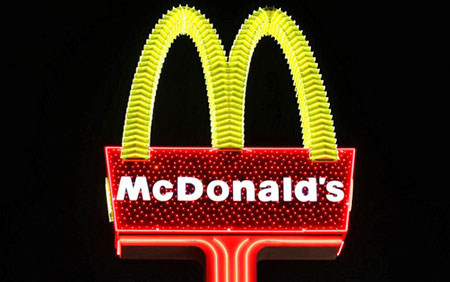|
|
|
In some parts of the world, good food is food prepared with care, attention, and a plenty of time.
This sort of food philosophy, where meals are made with fresh ingredients and patience, doesn't lend itself well to fast food where cheap ingredients are premade so they can be warmed and slapped together in record-time.
This sort of food dichotomy is exactly
why McDonald's couldn't thrive in Bolivia - the first Latin America
country to essentially kick the fast-food-giant out by keeping them
in the red.
"Fast" and processed foods are simply a
foreign concept to them. Why would you pay someone to provide you
with a less-than-delicious and unhealthy alternative to real food?
This attitude is one that the U.S. fast food nation could learn a
thing or two from.
In it, the filmmakers use interviews with cooks, nutritionists, teachers, and everyday Bolivians to try and explain why the fast food giant couldn't succeed there. In addition to inspiring a documentary, Bolivia has inspired people.
When you truly value food, when you really enjoy it, fast food is a poor (and eventually dangerous) substitute.
And though some cultures still adhere to this idea, many have lost themselves in the fast and convenient world of prepackaged food-like products.
Because McDonald's survived in Bolivia for 14 years, you can't say the battle was a quick one.
But when you consider the citizens of
that country simply did what came naturally and chose health, it was
an easy one.
|


